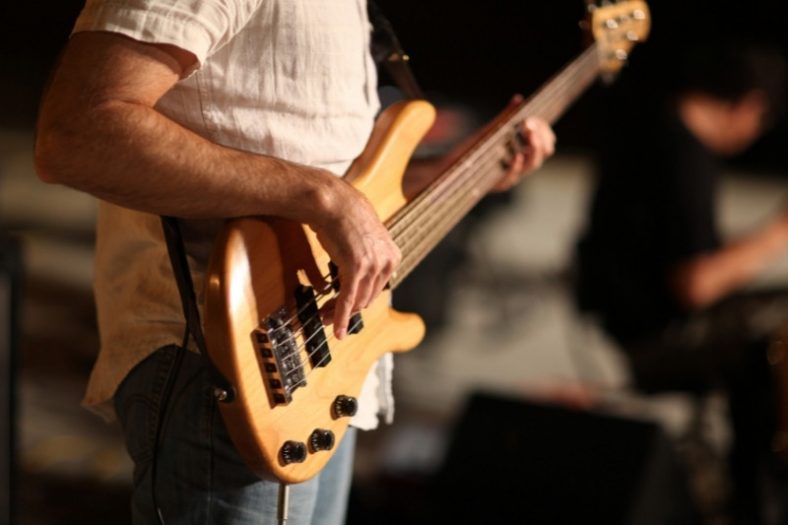10 Things Every Bass Player Should Know

While bass guitar may seem “easy” at first, it does require years and serious practice to reach a professional level. The journey ahead for every bass player requires certain knowledge. This includes a lot of practice, working in conjunction with other instruments, and more.
Many people think and consider the bass an easier instrument to play than the guitar, but that is simply not true. Playing and mastering the bass takes years of practice and dedication. Many world-renowned bass players still learn new things and keep improving.
That being said, there are certain things that every bass player should know. This can be something as obvious as “practice is key” to something as crucial as knowing your role and instrument. Let’s take a look at the 10 things every bass player should know.
Contents
- 1. Regular practice is vital
- 2. Structured practice is just as important
- 3. Knowledge of the fretboard (know every note)
- 4. You must know how to lock in with the drums
- 5. Helpful and functional harmonies (scales, arpeggios, chords)
- 6. Less is more
- 7. Be a musician as well as a great instrumentalist
- 8. Don’t overplay or try to steal the spotlight
- 9. Know your role
- 10. Have fun with it!
- Conclusion
1. Regular practice is vital
Let’s start with the obvious one. This is true in every sense of the word. Practice is key for any instrument, not just the bass guitar. The more your practice the better you’ll be and that includes consistency. Having a routine practice session every day, or almost every day (in most cases) will greatly increase your skills and also provide a healthy habit.
There are many benefits to regular practice. This includes feeling at ease with your instrument, building up your technique, improving speed over the fretboard, and more. You’ve never heard of virtuosos getting “good” overnight. All of them have spent hours upon hours over their instrument to get to where they are.
Another important thing to keep in mind is that not every “practice” needs to be just this or just that. Doing and practicing things you like will also prove fruitful. So, in that sense, practice as much as you can and practice stuff you like or just do (play) things you like under the guise of “practice”.
2. Structured practice is just as important
To follow up on the previous advice, a structured practice regime will always be beneficial. Learning your scales, notes, and chords should be first on the list, and this requires consistency and hours to get right. Start with the essential scales and slowly move to more complex materials, at your own pace.
As you nail the basics, you can then start to put a bit more fun into your practice sessions and throw in some easy-to-play songs on the bass. All the practice in the world means nothing if you don’t apply it so, naturally, playing and learning some songs is a gradual step.
My advice would be to learn to read bass tabs as soon as you can so you don’t have to rely on YouTube videos (pausing, looking, analyzing, and then playing). This will save you some time and greatly increase your flow of learning new material.
3. Knowledge of the fretboard (know every note)
This is a must in any case! Knowledge of your instrument, namely the fretboard of the bass, is essential. Knowing every note is something that every bass player needs to have in their arsenal if they hope to improve in any sense.
Knowing the root note and where every substitute note is (through practice and patience) will give your expert knowledge to improvise, think on your feet, and easily lower or raise a songs octave, not to mention that it will help you with visualizing the fretboard and knowing your moves (jumps) beforehand.
4. You must know how to lock in with the drums
When playing in a band setting, the bass and drums are almost always working in conjunction. The bass follows the drum beat and usually plays notes at the same time in relation to the kick drum. If you listen carefully, you will almost always hear this in every band performance.
The reason behind this is that when the bass and the drums are in sync, the beat sounds more full and on track. For example, if the drummer highlights every 2nd and 4th beat on the kick drum, naturally, the bass player will also emphasize the 2nd and 4th beat with a note strike.
Here is a great clip to further explain this claim.
5. Helpful and functional harmonies (scales, arpeggios, chords)
This relates to the third piece of advice on this list in terms of having knowledge beforehand. Knowing functional harmonies on the bass, scales, arpeggios, and chords, and how they interact is essential if you want to fit into any band setting.
This is the knowledge that you take with you anywhere you play. Having chord knowledge, chord progressions, scales, and arpeggios will not only help when improvising but whatever the genre or style before you, you can adapt to it very easily. Knowing the right scale for the occasion can help you embellish a song with fills, give some context to it, and just overall improve it.
Here are some arpeggio patterns that you can learn along the way.
6. Less is more
This is by far my favorite and most helpful advice I’ve gotten over the years. You’ve probably heard this a dozen times in your life. Knowing when to simplify your playing and keep it simple is almost always going to sound better and improve the overall sound of the track.
I know that years of practice usually result in “showing off” but sometimes it’s better if the song sounds better and not just you. A simple octave thrown in between beats or just holding a single note with maybe a double emphasis sounds so pure and just right sometimes, especially on bass. While most instruments may not apply this, the bass is perfect for it.
7. Be a musician as well as a great instrumentalist
Following up on the previous advice, being aware of the music and instruments around you is key in most settings. While slap bass does sound amazing, it is not always necessary. Follow your bandmates and be aware of what you and they are playing. If the occasion is right, throw in some scales, improvise, and embellish a few beats.
The more you practice, the more you realize that when playing live, it’s all about the mood you set and feel. It doesn’t always have to be planned. If you feel like laying low in some parts and busting out some running basslines along the way then do it! Everything that fits the mood and feels right will almost always BE right.
8. Don’t overplay or try to steal the spotlight
You’ve rarely seen a bass player doing solo gigs. That said, the bass is usually found in a band setting and that comes with some responsibility and sensibility as well. You may know your fretboard, have crazy improvisations and can play extremely fast, but it’s also good to know that you’re not always supposed to be the center of attention.
Stick to the basics, don’t stray from the plan too much, and try to serve the band performance more than you would yourself. Most bands fail because everyone wants a piece of the spotlight but they don’t understand that if you play together, all of you will get it.
9. Know your role
This one is simple and relates to a few of the things already mentioned here. Knowing your role as a bass player means that, usually, you will be in the background providing that thump factor and keeping things level. And that is fine if you accept it early on.
No song is complete without the bass, and knowing this, you should put more value on yourself and realize the role you’re playing as opposed to being praised and trying to launch forward.
Find out more about the role of the bass in band settings with this helpful YouTube video.
10. Have fun with it!
Lastly, nothing is worthwhile if you’re not having fun and playing the bass is no exception. This relates to practice, performance, and everything else regarding the instrument. If you think practice is boring then spice it up with some fun songs, patterns, and similar.
The key thing to understand here is that not only will making it fun motivate you to keep going and practice more, but it will also make you a better bass player. The reason for this is that when you’re feeling the performance, you project your energy upon the crowd and they can feel it, trust me! Having fun while playing will make everyone watching you have fun as well.
Conclusion
No bass player is complete, even the most renowned, world-class bass players still learn new tricks and keep improving. That being said, there are a few crucial things that every bass player should know about the instrument, role, sound, and overall performance. Remember this advice, keep it simple, know when to push forward, and have fun at all times.





